The Salt River Valley in the Central Arizona desert was transformed by the Hohokam people. They engineered a system of canals over 100 miles long that carried water, making the inhospitable land arable and livable. Villages sprang to life along the river, and one expansive village archeologists would call Pueblo Grande became the center of the Hohokam’s complex and highly organized civilization. The Hohokam lived there for over a millennium until the 15th century. Then the people left. Consensus is that drought or floods drove them away.
By the 20th century, the modern city of Phoenix had sprung up around the life-giving water of the Salt River where the Hohokam civilization had once thrived.
Arizona became a state in 1912, and by 1920, the population of Phoenix had already grown to nearly 30,000. Its first skyscraper stood at seven stories. Soon, a 16-story hotel, the Westward Ho, beckoned visitors to the desert mecca. Boosterism took hold in the ‘30s, and by 1940, the Chamber of Commerce had all but erased any reference to the drab moniker Salt River Valley, replacing it with the new, more appealing Valley of the Sun. The main thoroughfare bringing people into the bustling city of over 65,000 was Van Buren Street. In 1943, travelers on the wide, busy street were very nearly assaulted with commercial choices: diners, bars, service stations and motor courts, one after the other with catchy names and catchy signage that enticed visitors to stop and stay awhile.
In August of 1943, a continent away, a World War raged. George Patton’s army had liberated Sicily, John F. Kennedy’s PT Boat was sunk off the Solomon Islands, the French had formed a Resistance to Nazi occupation and the Allies were planning an invasion of the Normandy coast. And by 11:30 on the morning of August 28th in Phoenix, Arizona, the mercury had already risen to 103 degrees. Heat rays emanated off the rocky, cactus-covered slopes of the surrounding mountains. The sun burned a hot, too bright light on the scene, and what emerged was an overexposed image, devoid of necessary details or explanation, as if reason itself had been washed away.
At the corner of Van Buren and 18th Street, in front of the service station he owned, a man lay sprawled and dying from a single gunshot. His legs were stretched out on the sidewalk, his head lying near the hot asphalt. The smell of hot tar wafted into his nostrils as his eyes dimmed. A 16-year-old boy wearing a charcoal gray shirt with the big red Texaco star emblazoned on the pocket ran inside the station. He snatched up the phone, dialed Zero and waited for the operator to answer.
A wild young man with black curly hair and crazed green eyes sped away down Van Buren toward the Palomine Motor Court. He ground to a stop in front of the cabin where he, his wife and their little girl were living, throwing a bottle of whiskey—half empty already so early in the day—into the floorboard. The liquor soaked into the floormat and filled the inside of the borrowed car with the cheap smell. It would take a while to get the smell out—even longer for the owner of the car to rid himself of his regret for loaning the car to such a man.
Early that morning, after he had borrowed the car from his part time-employer, the green-eyed man had tried to convince the 16-year-old attendant at the Texaco station to extend him credit because he didn’t have the ration stamps he needed to buy gas. The boy refused him, and the owner of the station ran him off. The curly-haired green-eyed man had the rest of the morning to let the affront fester in his mind. The rest of the morning for liquor to fuel his outrage. The whole rest of the morning. His mind turned it around and around, and his anger gathered fuel. He staggered a door or two down from his cabin to the cabin of a man he knew to have a rifle. He hatched a story about an ol’ cur dog that was pestering his little girl. Could he borrow the rifle to shoot that cur? Minutes later, he showed up again at the Texaco station. He parked across the street with the window rolled down. Between swigs of whiskey, he hollered angry, taunting words, intentionally luring the station owner to the curb. He raised the gun, closed one of his green eyes and took aim. A bullet hit the service station owner, the 35-year-old family man, pierced his heart, leaving him dying in the blistering not-yet-noonday sun. The black-haired man sped away again. He returned the rifle, saying to his neighbor, flatly, “I just killed a man.”
Fifteen years later, little Priscilla Gibson was riding down the highway with her daddy Ike. Her arm was hanging out the passenger-side window of Ol’ Red, Ike’s red pickup. She was letting her hand weave side to side and ride up and down on the hot wind as they drove down the flat highway toward home. It was less than 40 miles from Seminole, Texas to Dixon and, although there wasn’t much to see between city limit signs, Priscilla wasn’t bored. She was working on a Dilly Bar from the Dairy Queen and listening intently as her father told her the story of Quanah Parker, the last chief of the Comanches.
Some people believed Quanah Parker was born close to Seminole at Cedar Lake. Priscilla’s imagination went wild with the idea of the half-Indian, half-white Quanah on horseback, leading raids and war parties. “Right in through here, Nubbin,” Ike told her. Comanches had once reigned supreme on the High Plains, and the story of Quanah Parker lit a spark in Priscilla. She imagined he must have looked like her daddy, who was also half-Indian, half-white. Ike, chuckling, added to his story, saying, “Nubbin, you better watch way off on the horizon. You might see a ghost band of Comanches and Ol’ Quanah himself.” Half entertained, half concerned, Priscilla scanned the horizon, wondering if the Comanches would recognize her as a little Indian girl or scalp her for being a white settler. A shudder went through her.
Now oil wells dotted the flat prairie and cattle peacefully grazed. Once, great herds of buffalo flourished here, providing sustenance to the Indians. It took just twenty years to reduce the buffalo from 8 million to only 500. They were slaughtered—some for their hides, some for amusement. But the decimation of the bison was a part of a larger aim of the United States government—to conquer the people who had lived in brotherhood with the animals for centuries.
Quanah Parker and his band, though fierce and strategic, could withstand those same unrelenting, merciless policies for only so long. At last, the remaining band of Comanches—starving and dying of deprivation—surrendered. They were moved to the Kiowa-Comanche reservation in Oklahoma, not far from Ike’s birthplace. Quanah Parker retained his position of leadership and undertook the pragmatic goal of encouraging his people to thrive, rather than wither within the society of white interlopers that now dominated them. Quanah Parker’s pragmatism led him to learn new ways—white ways. He became wealthy and landed. Outwardly, he conformed, but he did not bend to the will of white society. He maintained the old customs, rejected monogamy—he built a 22-room house for his wives and children. He wore his hair in long braids and spurned Christianity in favor of the Native American Church. He encouraged the use of peyote and spread the gospel of the Ghost Dance among the tribes of Oklahoma.
If Quanah Parker’s heart resided in one world, his head allowed him to survive in the other. Priscilla’s young blood rose as she listened to the story, and a small seed of resolve took root in her. She would be independent of thought, too, and not easily compliant.
Gravel crunched as Ike pulled Ol’ Red off the highway, causing the hypnotic humming of tires on blacktop to cease, along with Priscilla’s vague worries about being scalped. Ike brought the pickup to a stop in front of the Ramirez Family produce stand. Father and daughter agreed theirs was the best produce around. Priscilla jumped out and skipped over to look at the watermelons piled high under a makeshift shed off to one side of a pickup truck. A tarp was stretched across four aluminum poles, two that stuck up on the side of the pickup, the other two resting on the hard ground, providing shade for Olga Ramirez. She was sitting in a lawn chair that was tucked in next to a card table that was loaded down with ripe tomatoes, okra and yellow crookneck squash. There were sacks of onions under the table and an ice chest with a handwritten sign scotch-taped to the top that said Homemade Tamales $3.00 a Dozen.
Olga’s young son came running from behind the pickup kicking up dust, waving hello with one hand, holding up his baggy pants with the other, in case the little rope he had threaded through the belt loops failed. His pants cuffs were rolled up several inches above his skinny ankles. His little bare feet were dusty. A huge smile spread across his face when he saw Priscilla. “Hola, Priscilla,” he called out. “Hi, Pete,” she said, then, “Daddy, can we get a yellow meat watermelon this time?” “Okay, Sugar Woog, let’s see if ol’ Pete here can help us find a good one.” “Oh, si, Senor Ike, I can!” Pete began to plow through the pile of melons, as if on a mission from God, until he landed on a melon he deemed just right. He hoisted the huge melon onto his tiny bare shoulder and carried it over to Ike’s pickup before Ike could take it from him. “Hoss, that watermelon’s bigger than you are!” Pete just grinned. Priscilla had a pocket full of Atomic Fireballs she’d gotten from the penny candy rack at the filling station. She handed one to Pete and unwrapped one for herself.
Pete took Priscilla’s hand and proudly led her over to a shady spot behind Olga’s lawn chair. There, in a cardboard box lined with blankets, was a mother dog and three puppies. Only weeks ago, Ike had found the little dog, spotted her laying under a mesquite tree, yards off the side of the highway. She was pregnant and exhausted, hot and thirsty, near death. He filled a cup with water and ducked under a barbed wire fence to reach her. When he’d gained her trust, he carefully carried her to his pickup and placed her on the seat beside him. He gently talked to her and stroked her little head as he drove along, not knowing what he would do with her but knowing he could not leave her. When he saw the produce stand, he remembered little Pete Ramirez—how he’d been inconsolable after his huge mongrel, ironically named Chico, had died of old age. The look in Pete’s eyes when he saw the little terrier curled up on the seat of Ike’s pickup was confirmation to Ike. When he drove away, he knew the little boy and the little dog would heal each other.
So, on that day when Ike and Priscilla stopped by for a yellow meat watermelon, Pete was as proud as he could be when he took Priscilla by the hand and led her to the box, announcing, “She had the puppies!” Priscilla looked solemnly down at the dogs, then back at Pete, and he answered the question that was in her eyes. “Oh, si. You can hold them. She will let you for a minute.” Priscilla dropped onto the ground next to the box, crossed her legs and allowed Pete to place each tiny puppy on her lap. Pete watched over them closely, and as the puppies began to squirm and squeal, he gently took them from Priscilla’s lap and replaced them in the box beside the little mother dog. The last one, the runt of the litter, threw a tiny, furious tantrum, and Pete said, “I have named those two, but this one, this little girl dog, I have not named her.” “I know,” Priscilla said. “Fireball! Name her Fireball.” Ike called out to Priscilla as he put several paper bags full of fresh produce in the pickup. “Come on, Nubbin, let’s get on down the road.” She reluctantly left the puppies and got into the pickup, waving goodbye to Pete and his mother and calling out as they drove off, “Bye, Fireball.”
Priscilla talked nonstop about the puppies all the way to Dixon and was still talking about the little runt when she and her daddy got out of the pickup at the Ford dealership. Ike was stopping off to loan Jack Macready his electric handsaw. Jack and Ike were close friends and Masonic Lodge brothers. Macready Ford was a sprawling concern that sat on the corner of Main Street and Avenue D, covering nearly half a block. The beige brick building had plate-glass windows on three sides, displaying a shiny fleet of new Ford cars in the modern showroom.
To the side of the showroom was a row of bays with cars jacked up high on hydraulic lifts. Men in navy blue uniforms stood with their heads inserted into the undercarriages of cars and trucks, draining oil, cranking big wrenches, loosening, tightening, adjusting, replacing automobile parts. They used all kinds of loud machinery that operated on air compression and hydraulics. The men had to shout across to one another to be heard over the din that was so intense it frightened Priscilla a little. When an air compressor emitted a sharp scream, she jumped and accelerated to Ike’s side. She cast a backward glance toward the busy bays and took her daddy’s hand until they got through the side door of the showroom. Safely inside, she skipped off to look over the new cars. She had her head poked inside the window of a new two-tone hardtop when Ike leaned over and reminded her that when she saw Jack to be sure and tell him Tennessee Ernie Ford had sent her. Jack would get a kick out of it, he said. Tennessee Ernie’s latest Ford TV commercial featured the new Ford Galaxy 500, exactly like the black-and-white model Ike and Jerry Dale had bought from Macready Ford in the spring. It was the first brand-new car they had owned.
Ike took the handsaw into Jack’s office and sat down to visit. They talked a while, then Jack thoughtfully lit a cigarette, paused and leaned across his desk toward Ike to share some serious words. On her way to Jack’s office, Priscilla stopped at the gumball dispenser, lost a penny when the handle on the front got stuck, then skipped on down the hall toward Jack’s office, prepared to obediently announce that Tennessee Ernie Ford had sent her. She rounded the corner just in time to hear Ike say, “I wouldn’t do it if I were you, Jack. He’ll steal you blind.” On the drive home, Priscilla pressed Ike, “Who, Daddy? Who’s going to steal Jack blind?” But uncharacteristically, Ike dodged her questions and changed the subject. He said, “Priscilla, did I tell you that Jack Macready was stationed in Japan during the war? That piece of pottery he keeps on his desk—he brought that home from Nagasaki.” Ike knew that any World War II reference would distract Priscilla.
Ike was preoccupied all throughout supper, only coming around to his usual self when he carried the big watermelon out to the backyard and placed it on top of the picnic table. He sliced the melon straight down the middle with a butcher knife. It fell open, revealing the yellow meat glistening with sweet juice. The black seeds arranged in rows down the sides reminded Priscilla of the matching yellow sundresses that had rows of black buttons down the front that she and Jerry Dale had worn on vacation earlier that summer. Ike had taken movies with his new camera of every event from the time they pulled out of their driveway in the new Ford Galaxy until they got home two weeks later. Standing in front of the Matterhorn at Disneyland in the matching dresses, mother and daughter looked like a couple of yellow meat watermelons.
Ike cut big, juicy wedges, and the three of them sat lined up on a picnic bench in the backyard, turned around to the outside, leaning over the lawn and letting the sweet juice from the big, salted wedges drip onto the cool, thick grass, careful not to make a sticky mess on the table that would attract pissants. Pissants were a major pet peeve of Jerry Dale’s, but Priscilla was fascinated by them and liked to follow their trail to see how far they would travel from their nest to a food source. Just the other day, she’d followed a line of pissants all the way from a discarded Milk Dud on the sidewalk in front of her house three houses down to Duck Kirby’s before it trailed off into the street and disappeared into a crack where the concrete curb met the black asphalt. Duck Kirby waved at her from inside her front window. In all the years Priscilla had known her, Duck was rarely ever outside the house except late in the afternoon when she faithfully watered her rose bushes. And Priscilla had never seen Duck’s husband Ollie, who was in a wheelchair. It was in France when he got shot in the leg, there in the trenches. Gangrene set in and his leg had to be amputated. Ike held Ollie in high esteem because he was a veteran of the First World War. War War One, Priscilla called it. Ike had been in War War Two. Ike had a half-brother, Roy, who was also a War War One veteran.
Ike’s father B.V. had five sons with his first wife, with Roy the oldest. Both B.V. and his first wife were white. When B.V.’s first wife died, he married a full-blood Choctaw Indian woman, and together they had three children, including Ike. From her own first marriage, Ike’s mother had two daughters, full-blood Indian. So, the blended family Ike grew up in consisted of five white half-brothers, two full-blood Indian half-sisters and two siblings, a full sister and a full brother, who were half-Indian, half-white. “It was a mixed-up bunch, Nubbin,” Ike would tell Priscilla if she asked for the rundown, which she did over and over again.
When Roy came to visit, Priscilla would sit listening to the half-brothers, one white and older by decades than the brown younger brother. They talked about the people back in Oklahoma. Priscilla would only ever know them from stories she heard them tell—characters from what might as well have been a foreign land, where Saturday nights were filled with fiddling and drinking, dancing and singing on the front porch and out in the yard until almost daylight. Where the Sunday morning air carried the aroma of coffee, red-eye gravy and biscuits, and the insistent wives rousting menfolk out of cots and pallets, nagging them to get up and ready to go to the brush arbor meeting where they might get their damned souls saved.
The subject of the War Wars always came up between Roy and Ike. Roy was a veteran of the Great War, the war to end all wars, the First War War. He came home nearly blinded by mustard gas. And lucky, Ike said, to have come home with his wits about him. Many didn’t.
Ike was a veteran of the Second War War. Priscilla wanted to know everything. Ike’s war stories were full of details about the people he met and how they lived and what they ate and what the country was like. He told her that Europe, even while embroiled in a World War, looked like a storybook land with thatch-roofed houses out in the countryside, rock fences running alongside narrow roads, inns and pubs on cobblestone streets, and hills and mountains covered in soft green, unlike the windblown plains and prairies Priscilla was accustomed to. She imagined Europe must be like Disneyland. Ike told her stories about London, the West End shows he’d seen at the Palladium and the popular variety shows where GIs could listen in person to the great wartime songstress, Vera Lynn. Ike described what it was like to cross the Atlantic Ocean on the Queen Mary. The luxury cruise ship was renamed the Grey Ghost when it was enlisted to carry thousands of troops at a time, zigzagging across the sea to avoid German U-boat torpedoes. Ike told her the men slept on deck stacked like firewood, and how he had no appetite for the mess hall but instead subsisted on coffee, vanilla wafers and cigarettes for the days and nights before they reached their destination in faraway Scotland. A pipe-and-drum band welcomed 15,000 amazed GIs, escorted them past cheering crowds along ancient cobblestone streets.
Ike’s stories about his harshest memories were spare and less often repeated, but occasionally, he brought out sobering mementos of his wartime experience. He kept the trove of souvenirs in a tall mahogany gun cabinet that Priscilla had watched him and her grandfather build. On the shelf behind the glass doors were two German beer steins and a highly glazed, brown ceramic ashtray that was decorated with slender lizards. The ashtray had wide grooves meant for cigars, and the letter G stood out prominently in the center. And in the bottom of the cabinet behind doors and way in the back was a pistol in a brown leather holster. On rare occasions, Priscilla was able to persuade her daddy to take the pistol out and tell her the story of how he had taken it off an SS officer, one of many soldiers that crossed the Elbe River and surrendered to the U.S. Army. “What was he like, Daddy?” Priscilla would ask, knowing the answer would be the same as it had been every other time she’d asked. The officer had been combative and belligerent, Ike told her, not whipped, worn out and starved like the young soldiers Ike remembered as seeming relieved to be captured. Ike’s voice would go soft and quiet. “They weren’t much more than kids, Nubbin,” he’d say.
The most disturbing—and of course, the most fascinating—thing from the cabinet was a small collection of photos, worn and cracked. The small photos showed, in blurry black-and-white, rows of bodies lined up along a roadside. American GIs had ordered German soldiers to dig proper graves and bury them with some dignity and decency. Priscilla only saw the pictures a few times before Jerry Dale insisted on their destruction.
Ike’s unexplained preoccupation after his conversation with Jack Macready persisted for weeks after he and Priscilla stopped by to loan Jack the saw. What Jack Macready had told him was preying on Ike’s mind, leaving him feeling unsettled. A particular memory of a particular night many years ago in England during the war. A night in 1943. It kept playing over and over in his mind.
It was the night before his 21st birthday, and he was pining for home. He’d decided to try to send a little extra money to his mother, so instead of going into London with his buddies to the pubs and dance halls, he stayed in the barracks. Lying on his bunk smoking cigarettes and listening to the Voice of America on the radio, he’d been about to turn over and get some shuteye when a news bulletin came on. The news story was about a senseless murder. The report went on to say that the killer was originally from Pauls Valley, Oklahoma. Ike sat up and lit a cigarette. Pauls Valley was near Ike’s home. The report continued. It described a dispute over gas rationing stamps that led to the alleged premeditated murder of a man, the owner of a service station in Phoenix, Arizona. The newscaster went on to say, “After shooting the owner, Clifford Gibson fled the scene and returned to a motel where he, his wife and young child were living. An hours-long standoff ensued before police arrested Gibson and booked him on suspicion of murder.” Ike sat stunned in his bunk. A blanket of memories of hot humid childhood days spent running across the faraway hills of Oklahoma almost smothered him with its weight. Clifford Gibson was Ike’s first cousin.
And what could possibly have been the odds of Ike being in his bunk, listening to that broadcast at that very moment instead of being at a dance hall or pub on a Saturday night with the rest of his buddies? Had to be a million to one.
Ike remembered that even as young boys in Oklahoma, he had avoided his cousin Clifford, who was always in trouble and who just as easily got himself out of trouble using his charm and guile and good looks. Clifford Gibson was without conscience. And although he was sentenced to prison for life for the murder he committed in Arizona in 1943, he was out on parole even before that day fifteen years later when Ike and Priscilla stopped off to see Jack Macready. The Arizona parole board must have been as susceptible to his charm as everyone else. And when Clifford Gibson left prison, he not only left with parole granted, he left with the prison warden’s wife as well. Eventually he made his way to Dixon and took up residence with the warden’s wife on the second floor of the local hotel. Another female companion was ensconced on the first floor of the same hotel.
Clifford was not only charming and alarmingly handsome, he was good at anything he put his mind to. He could have made a fortune through honest work, but that didn’t interest him. He learned to do auto body work in prison, and when he went to Macready Ford looking for a job, Jack Macready ignored the warning Ike had given him. He’ll steal you blind, Ike had said. But Jack discounted Ike’s admonition, saying Clifford Gibson was the best auto body man he’d ever hired on.
Ike made a point of steering clear of his cousin. Kinfolk or not, he had no use for a man like Clifford. Not more than six months after Clifford Gibson showed up in Dixon, Jack Macready sat down at a booth at the Ranch House Cafe across from Ike, ordered a cup of coffee and said, “Well, Ike, I wish I’d listened to you. That son of a bitch skipped town and stole every tool in my shop.” Ike responded with a silent nod.
For some forty years, Clifford Gibson was in and out of prison for crimes ranging from the murder to car theft, burglary, battery and parole violation. He was granted parole as many as five times over four decades. His story was followed by the press for all those years. Clifford Gibson died in prison, in his seventies—having broken his last parole five years before.
First cousins share around twelve-and-a-half percent of their DNA. They share grandparents. They share family ties. Most often, they share childhood experiences, and they share similar values in adulthood. Somewhere in the long molecule of DNA where 23 tightly coiled pairs of chromosomes squeeze into the nucleus of a cell, the markers for goodness and kindness and decency were lost to Clifford Gibson. Goodness and kindness and decency lived inside Ike Gibson as surely as stars shine through a velvet black sky. Differences aren’t always visible from the outside. Kinfolk, like watermelons, aren’t all the same. Some have different-colored hearts. One man borrows a rifle, saying he wants it to kill a cur dog and uses it instead to kill an innocent man, while the other man rescues a helpless, abandoned dog, saving her life, and places her into the loving arms of a little boy.











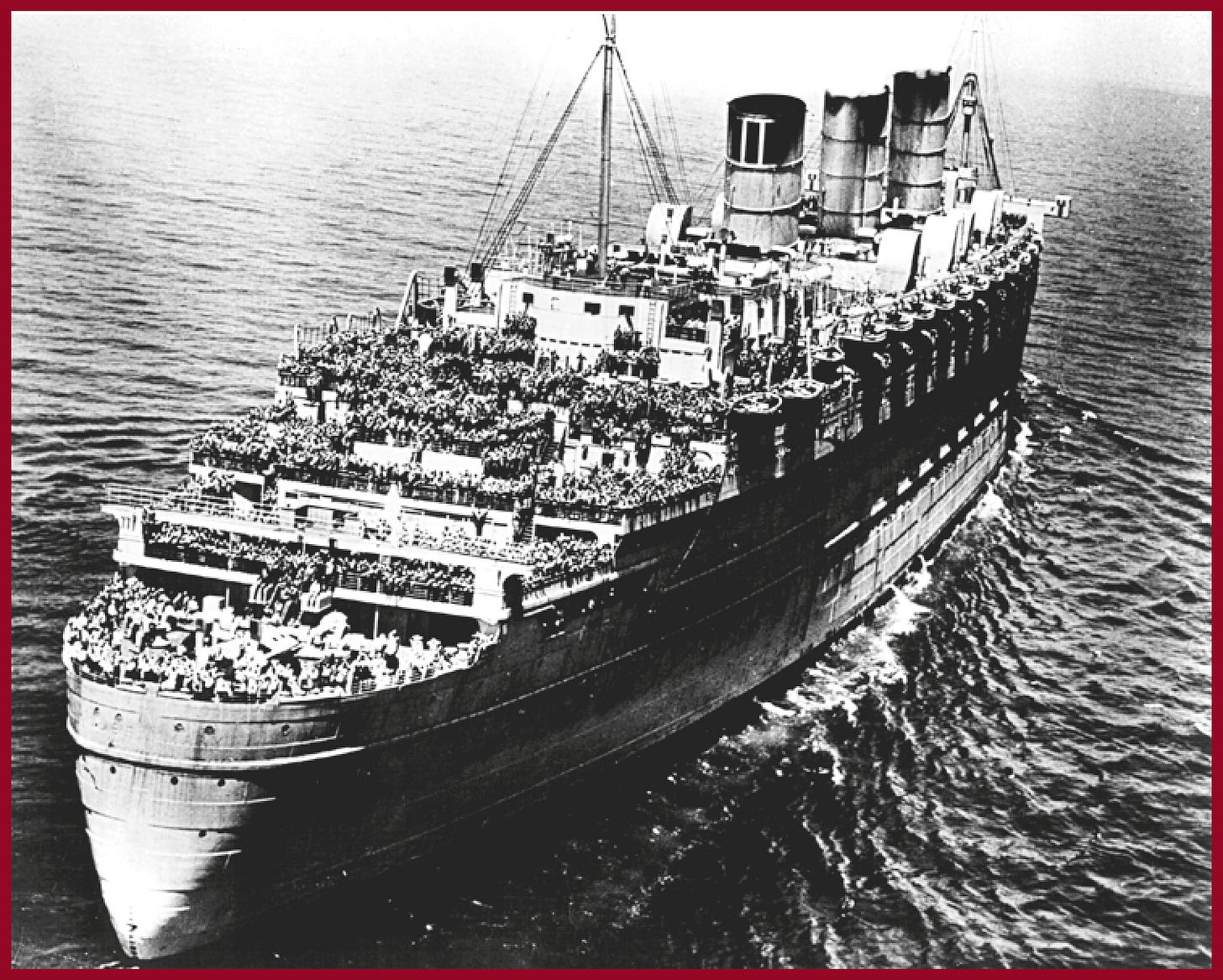




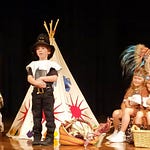
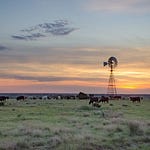


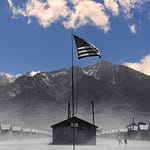
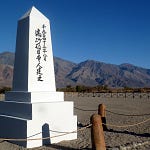
Share this post